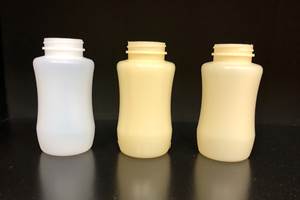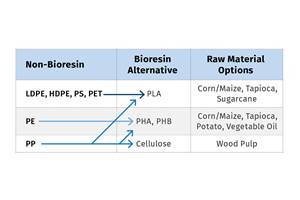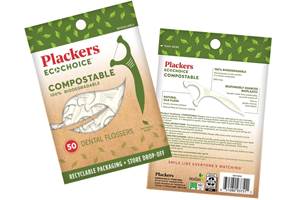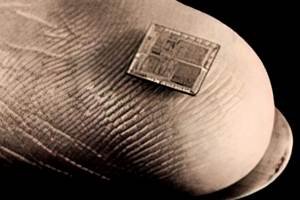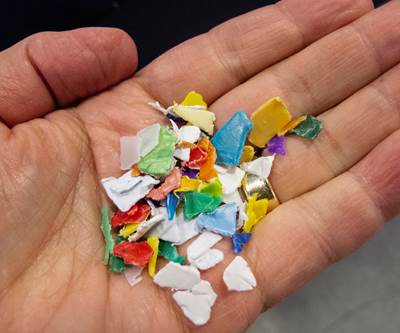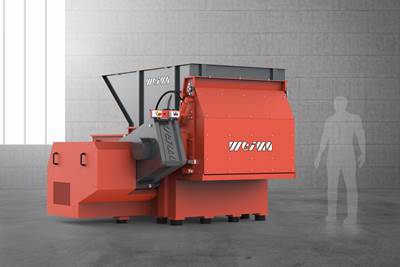Plastics and the Joy of Chemistry
A Public Broadcasting program revels in the achievements of polymer chemistry while also warning of the problems that come with its benefits.
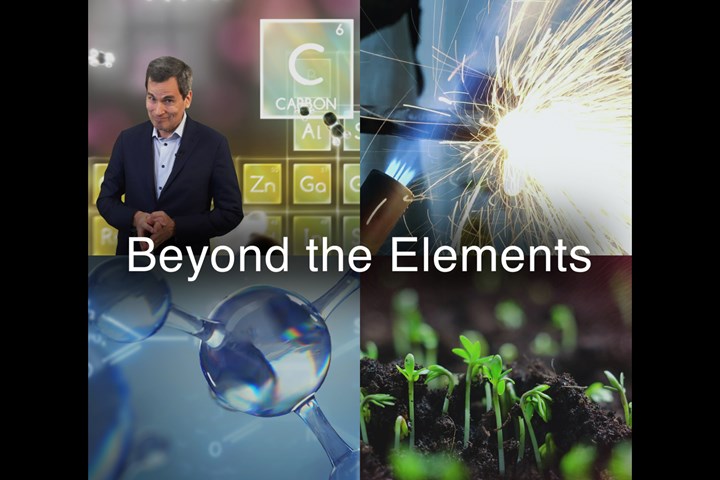
“Beyond the Elements,” a series on the PBS series “Nova” program (produced by WGBH Boston), celebrates the wonders of chemistry – including synthetic rubbers and plastics. (Photo credits: Messier Cutting Systems, rtemegorov/Pond5, DimaBalanFilms/Pond5, 2020 WGBH Educational Foundation)
It’s not often that we see plastics presented in a positive light in the popular media, and even less often seeing a TV host giddy with pleasure in seeing a chemical reaction producing nylon in a laboratory beaker.
Imagine my surprise, then, when I tuned into an episode of the PBS TV series “Nova” last week titled, “Beyond the Elements: Indestructible” -- a rebroadcast of a show from a year ago as part of a series on the wonders of chemistry. I was prepared by the program blurb for a denunciation of synthetic materials that are “indestructible” pollutants in our land and water. All the more so when the opening scenes included statements about “The menagerie of modern plastics that is both a miracle and a menace.” And, “Rubber and plastics – materials we’ve come to depend on but that sometimes come with difficult environmental downsides.”
However, the majority of the program took a much more positive approach toward the wonders of materials science. The jovial and enthusiastic host, science and technology author David Pogue, approached the concept of “indestructibility” from the angle of manmade materials that demonstrate almost miraculous feats of durability. He started with tempered glass that can be pounded with a hammer and proceeded to a spray-on polyurea elastomer coating that when subjected to all sorts of abuse proved … well, indestructible. The he proceeded to plastics, focusing mainly on nylon and polyurethane foam.
Interestingly, the segment of the show on plastics (which came well after the halfway mark of this hour-long show) spent most of its time demonstrating lab-scale production of nylon 66 and PUR foam, which delighted Pogue with the slimy skein of polyamide he pulled continuously out of a beaker and with the effusion of foam cascading out of a beaker and over the lab bench. In fact, each segment of the show on glass, rubber and plastics was a lucid little chemistry lesson, enlivened by clever animations that made my memories of college chemistry seem like a primitive relic of a distant past (pretty distant, I must confess).
But after the “fun with chemistry” segment on plastics, Pogue delivered the grim news that only 9% of annual plastics production globally is recycled, the rest going to landfills, incineration or otherwise polluting the planet. Pogue went on to interview a chemistry professor at the University of Georgia, who lamented our society’s addiction to single-use plastics: “Is that really a way to design packaging – to have a material you use for 10 seconds and it goes to a landfill for a thousand years?” He then showed Pogue that “even packaging that looks recyclable, like paper takeout food containers, may not be because the are coated with plastic to make them impermeable to moisture and grease. Then he presented the good news that paper can be coated with PHA biopolymer to provide the desired performance while being biodegradable. Unfortunately, the professor pointed out, PHA is still too expensive for such applications.
The professor then pointed an accusing finger at a sector of the plastics industry that markets products like plastic bags as “biodegradable,” when they fall far short of that description in practical terms. “Absolute greenwashing,” concluded the professor. “Seems like a total scam,” agreed the appalled host.
Nonetheless, Pogue ended on a hopeful note: “We can make materials that last more than a human lifetime – and now we’re drowning in them. But attitudes are changing. The human ingenuity that helped create the crisis may help solve it as well.”
A reasonably balanced assessment – way more so than the standard fare I’m used to in the popular media. I didn’t find anything inaccurate in the presentation, and I would recommend it to anyone that hopes to enchant young people with the promise and possibilities of industrial chemistry to accomplish amazing feats and improve our lives.
Related Content
How to Extrusion Blow Mold PHA/PLA Blends
You need to pay attention to the inherent characteristics of biopolymers PHA/PLA materials when setting process parameters to realize better and more consistent outcomes.
Read MoreHow to Optimize Your Molds and Hot Runners for Processing Bioresins
Demand for bioresins is growing in molded goods, particularly as a sustainability play to replace fossil-fuel based materials, but these materials are not a drop-in replacement for traditional materials. Molds and hot runners need to be optimized for these materials.
Read MoreHow to Optimize Injection Molding of PHA and PHA/PLA Blends
Here are processing guidelines aimed at both getting the PHA resin into the process without degrading it, and reducing residence time at melt temperatures.
Read More50 Years...600 Issues...and Still Counting
Matt Naitove marks his first half-century in plastics reporting, with a few of his favorite headlines.
Read MoreRead Next
Why ‘Plastic Wars’ Got Me Riled
Is plastics recycling a decades-old scam or fraud? New PBS documentary takes a myopic view of broad-based industry trends.
Read MoreLead the Conversation, Change the Conversation
Coverage of single-use plastics can be both misleading and demoralizing. Here are 10 tips for changing the perception of the plastics industry at your company and in your community.
Read MoreRecycling Partners Collaborate to Eliminate Production Scrap Waste at NPE2024
A collaboration between show organizer PLASTICS, recycler CPR and size reduction experts WEIMA and Conair will seek to recover and recycle 100% of the parts produced at the show.
Read More

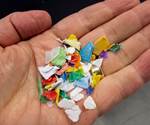

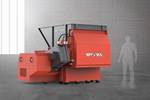






 (2).jpg;maxWidth=300;quality=90)








